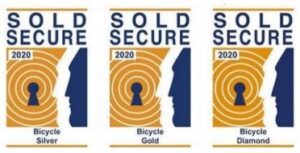2025 VW ID.Buzz in U.S. Spec Is Nostalgic but Full of Modern Conveniences

The long-awaited U.S.-market VW ID.Buzz has the extended wheelbase, which makes room for a third row, and seating for seven. It’ll be available with a choice of 282-hp single-motor rear-wheel-drive or 330-hp dual-motor all-wheel-drive powertrains. Bright color combos inside and out call back to the ’60s, but with a contemporary spin and fully modern tech.
While some buyers of the 2025 Volkswagen ID.Buzz will be trying to revisit their time in 1960s Haight-Ashbury—or at least their fantasies of having been there—you don’t have to have been a counterculture hippie to feel nostalgia for Volkswagen’s Type 2 Microbus. The VW people hauler is a cultural icon that represents a lifestyle of playing guitars around a beach campfire, road trips with family, and gentle rebellion against the status quo. It was appealing then and it’s appealing now, even more so with an electric powertrain and a host of comfort and safety options.
VW announced a return of the bus back in 2022. The first U.S. versions of the electric ID.Buzz should be on their way to a dealer near you by June of 2024.
Long Way to Go, Short Time to Get There
The European version of the ID.Buzz is a two-row machine with a shorter wheelbase than what we’ll get here in the States. The U.S.-spec bus is stretched 10 inches, for a 127.5-inch wheelbase, so it keeps those short overhangs and uses all of that extra space for interior room. The added length allows for a third row, which means seating for seven.
While it’s considerably larger than an original Type 2 bus (they were called Microbus for a reason), the ID.Buzz offers plenty of visual cues connecting it to its ancestor. It’s not quite as flat in front, but it does have a similar boxy, yet rounded, profile, throwback “vent” details on the D-pillar, giant front badge just aching to be replaced with a peace sign, and cheerful, two-tone paint options. Some of the colors are familiar from previous showings of the bus, like Energetic Orange, Pomelo Yellow, and Mahi Green, but others are new, like the oceany Cabana Blue, Metro Silver, and Indium Gray. Don’t get a gray bus when you can get a blue or orange one, we beg you.
The original Type 2 was charming in its looks, but also a useful way to carry friends and gear. The 2025 ID.Buzz looks to carry on those traditions. Dual power-sliding rear doors that go all the way back to the third row make it easy to get people in and out. The horizontally sliding windows are also powered, as are the heated side mirrors and the tailgate. Other modern exterior details include 20-inch wheels.
Power Play
Customers will have the option to choose between a single-motor, one-speed transmission, rear-drive powertrain or a more powerful dual-motor, all-wheel-drive setup. Rear-wheel-drive buses make 282 horsepower and 406 pound-feet of torque, while the dual-motor version puts out about 330 horsepower. The ID.Buzz rides on VW’s Modular Electric Drive (MEB) “skateboard” platform, so the battery is mounted low in the floor. We get a larger battery than Europe, with a usable capacity of 86.0 kWh. Volkswagen hasn’t released range estimates yet, but based on other VW electric offerings we’re expecting to see mileage numbers around 260 and charging times of around 30 minutes to take a 10 percent battery to 80 percent at a DC fast-charger.
The bump in power is due to use of stronger permanent magnets in the motor with improved heat management. With the new motor, the ID.Buzz has a top speed of an electronically limited 99 mph compared to the two-row’s 90 mph, and an original Type 2’s . . . walking speed.
What’s Inside
The same play of retro design and contemporary tech that makes the exterior of the ID.Buzz unique is also found in the interior. Several design schemes are available, from a deep shadowy blue with dark wood to a bright coastal peach and silver. All interiors use non-leather seat covers and trim. The interiors are playful, and designed for convenience, with adjustable small compartments in the removable console, rubber-lined shelving along the dash, and wide door pockets.
Standard features include ambient lighting; 12-way adjustable front seats that are heated, vented, and massaging; and a heated second row. An optional 67.4-inch-long electrochromic sunroof can go dark with the swipe of a finger.
With the standard second-row bench, the ID.Buzz seats seven, and with the optional captain’s chairs in its place, it’s a slightly roomier ride for six. The second row folds in a 60:40 split and can be slid forward or back by almost eight inches. The rear row folds 50:50 and can be removed completely for more cargo room. All three rows get climate control vents, a welcome upgrade.
A small digital dash and a 12.9-inch infotainment screen handle all the data needs, with standard wireless phone connectivity, wireless charging, eight USB-C ports, a 110V outlet, and a 12-volt plug in the cargo area supporting any other charging needs. Lights in the dash illuminate to tell you the car is waiting for commands, or to give updates on navigation and battery status. The Buzz comes with VW’s IQ.Drive driver assistance package standard, which includes adaptive cruise control.
Everything Old Is New Again
The ID.Buzz is sure to be a standout in the school drop-off line and turn heads in the early-morning coastal fog as you unload surfboards. VW’s new bus is friendly and attractive, and now ID.Buzz also offers safety tech, comfort, and fume-free electric upgrades that make it an excellent choice for the modern free spirit.
Senior Editor, Features
Like a sleeper agent activated late in the game, Elana Scherr didn’t know her calling at a young age. Like many girls, she planned to be a vet-astronaut-artist, and came closest to that last one by attending UCLA art school. She painted images of cars, but did not own one. Elana reluctantly got a driver’s license at age 21 and discovered that she not only loved cars and wanted to drive them, but that other people loved cars and wanted to read about them, which meant somebody had to write about them. Since receiving activation codes, Elana has written for numerous car magazines and websites, covering classics, car culture, technology, motorsports, and new-car reviews.




